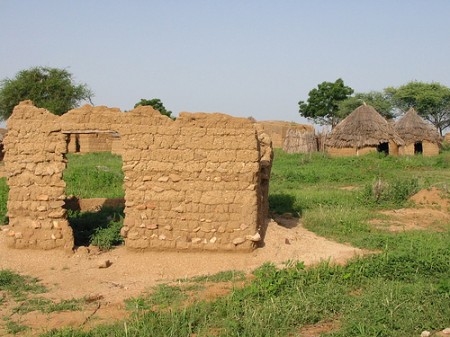
Back in November 2008, I wrote a commentary piece on the Darfur conflict for ISN Security Watch (Sudan: China is Key) with the phrase, “the incoming Obama administration can show its resolve to combat genocide.” I can no longer say with conviction that this loaded term is an appropriate description of what transpired in the region.
I have eschewed the label in my analytical reports ever since. All the same, the debate is an important one and warrants further scrutiny. It also highlights the intersection of politics and law in international criminal justice.
What transpired in Darfur, for the most part between 2003-2006, was certainly a grave humanitarian tragedy and an abhorrent counter-insurgency campaign, but did it amount to genocide?
Former US Secretary of State Colin Powell first described the conflict in Darfur as genocide back in September 2004, sparking a flurry of activism and prompting calls for military intervention. Since then, an inadequate but better-than-nothing AU/UN peacekeeping operation has been deployed, and the International Criminal Court (ICC) referred by the UN Security Council has opened a formal investigation, indicting among others, Sudanese President Omar al-Bashir for war crimes and crimes against humanity. The prosecutor of the ICC, Louis Moreno Ocampo, has continued to vigorously push for charges of genocide against Bashir for targeting the Fur, Massalit and Zaghawa tribes. This has invited accusations of politicization, as critics charge that the evidence is circumstantial.
Article 6 of the Rome Statute of the ICC defines genocide as:
[A]ny of the following acts committed with intent to destroy, in whole or in part, a national, ethnic, racial or religious group, as such:
- Killing members of the group;
- Causing serious bodily or mental harm to members of the group;
- Deliberately inflicting on the group conditions of life calculated to bring about its physical destruction in whole or in part;
- Imposing measures intended to prevent births within the group;
- Forcibly transferring children of the group to another group.
A seminal 2005 UN Commission of Inquiry Report on the Darfur conflict found that the various tribes of Darfur, although far from constituting homogeneous religious and ethnic entities, could be viewed as ‘subjective protected groups.’
The hitch with Mr Ocampo’s efforts is that he appears bereft of evidence to demonstrate genocidal intent on the part of the central government in Khartoum.
Indeed the Commission concluded in its findings that Khartoum was guilty of war crimes and crimes against humanity, but not genocide. As proof, it pointed to instances of select killings of would-be insurgents rather than entire populations, as well as the aggregation of conflict refugees in government-run camps not intended for extermination following hostilities.
Alex de Waal, a prominent Sudan expert, has denounced the prosecutor’s behavior.
Conversely, John Prendergast of the Enough Project and the Save Darfur Coalition in Washington DC continue to argue, as many others do, that the evidence for genocidal intent is conspicuous.
The Darfur conflict also has a regional dimension, suggesting a more archetypal proxy-war situation, but not excluding the possibility of genocidal behavior in individual cases, which is rarely broached in the mainstream press. Although the two have ostensibly reconciled in the past months, Khartoum was claiming not so long ago that Chadian President Idris Derby in N’Djamena – himself on French life support – funds the Darfur rebel groups. N’Djamena has accused Khartoum of similar behavior. The conflict also spills over into the northeastern Central African Republic (CAR). (Read The Tormented Triangle, a Crisis States Research Centre report on the regional aspect of the crisis.)
It is a debate. And the question of whether or not specific individuals in Darfur acted with genocidal intent is now for the judges in The Hague to ascertain. In the meantime, it is probably best for us to stick to the measured findings of the Commission report:
“The conclusion that no genocidal policy has been pursued and implemented in Darfur by the Government authorities, directly or through the militias under their control, should not be taken in any way as detracting from the gravity of the crimes perpetrated in that region. International offences such as the crimes against humanity and war crimes that have been committed in Darfur may be no less serious and heinous than genocide.”

